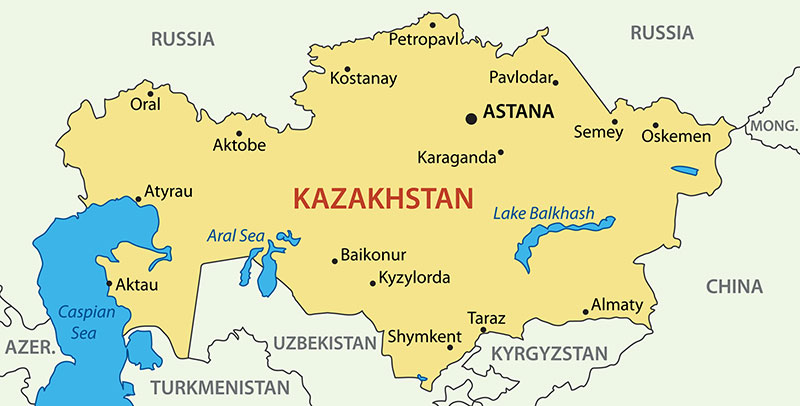Kazakhstan Benefitting From Middle Corridor Haulage
Growth in transit volumes between Europe and China via Khorgos
Vadim Zakharenko, Kazakhstan’s Director to the European International Road Transport Union (IRU) and said that given the current geopolitical situation, Kazakhstan now plays an even more important role in connecting Asia, and especially China. He noted that trade routes have shifted from the north to the Middle Corridor, with Kazakhstan playing a pivotal role.
“The Sea Port trade of Aktau (Kazakhstan) to Baku (Azebaijan) has recently grown in terms of volumes. Kazakhstan also has an important role in the International North–South Transport Corridor, connecting India, Pakistan and the Gulf Cooperation Council.” Zakharenko said.
Zakharenko also pointed out that Kazakhstan has been investing in roadside infrastructure to create favourable conditions for international road transport, including safe and secure parking areas.
“In 2018, Kazakhstan and China opened a new border crossing to boost transport and trade along the new Western China to Western Europe 8,445 km expressway – part of China’s Belt and Road project. Kazakhstan has also invested in the creation of the largest dry port, at Khorgos, on its border with China to handle various modes of transport,” he said.

Commenting on whether the existing infrastructure be enough or it needs to be improved further, Zakharenko said that during the recent International Transport and Logistics Forum in Almaty, Kazakhstan announced its ambitious goal to revamp all transit corridors by 2030 and to better connect Asia to Europe.
“Evolving multimodal corridors, such as the Middle Corridor, will be bolstered to cope with the ever-growing flow of goods. Apart from modernising “hard” infrastructure, Kazakhstan has focused on improving “soft” solutions. It is actively implementing trade and TIR digitalisation. Kazakhstan has been pursuing such projects with neighbouring countries. For example, in 2021, Uzbekistan and Kazakhstan customs authorities opened green lanes for digital TIR transits. These “express lane” systems speed up border crossings for TIR transports using digital guarantees,” he concluded.
Related Reading





